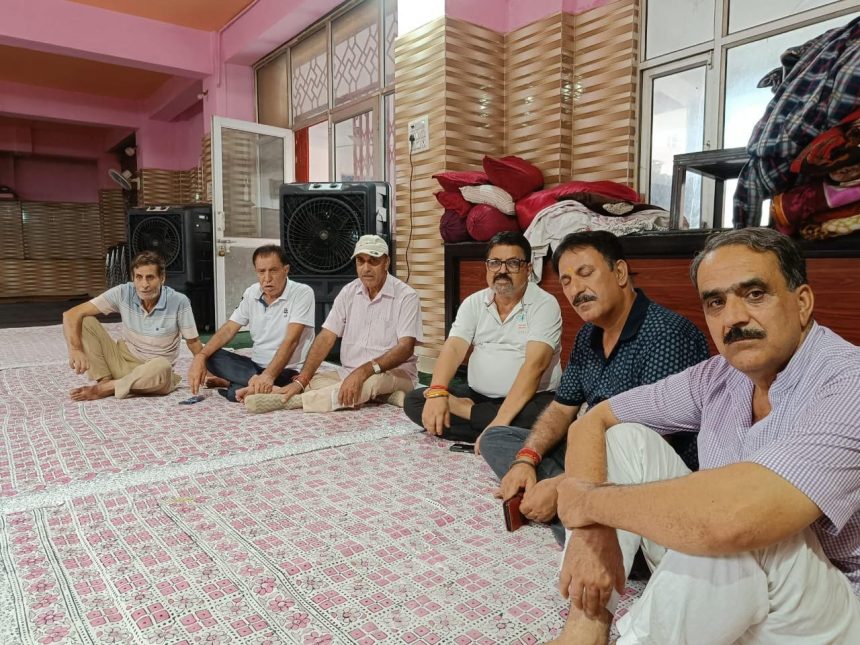Jammu, July 29: To finalise the preparations for the observance of the 36th Balidan Divasn to be observed on 14th September 2025, Panun Kashmir held a meeting of the core committee on Tuesday under the chairmanship of Prof. Tito Ganju Vice Chairman of Panun Kashmir and co-chaired by D.K. Kaul.According to a statement issued here, senior functionaries, including B.L. Kaul, organising secretary, and representatives of Panun Kashmir Yuva and the Legal Affairs Unit were present during the meeting.It was resolved that this year’s observance would feature the lighting of a symbolic mashaal in remembrance of all the martyrs of the Kashmiri Hindu genocide. The mashaal will not be a one-day ceremonial act but will be preserved and safeguarded as a living symbol of resistance until the day Panun Kashmir is established. Upon the creation of the homeland, it will be permanently enshrined at the proposed Martyrs’ Memorial.Prof. Tito Ganju, while addressing the committee, stated, “This mashaal is a sacred fire of our collective memory. It represents the martyrs of over 700 years of sustained genocide, cultural uprooting, and civilizational assault. It also pays homage to those in uniform who laid down their lives defending the sovereignty and constitutional integrity of this nation. This flame will not fade until justice is achieved and Panun Kashmir becomes a constitutional reality.”Taking cognizance of Shailendra Aima’s, senior vice chairman of Panun Kashmir, detailed response to the Tankha Bill, the Committee endorsed in affirmation to his averments.The Committee took serious note of the ongoing discourse around the Tankha Bill. Panun Kashmir reiterated its consistent position that the Bill, in its present form, fails to meet the essential benchmarks of justice, truth, and restitution.Prof. Ganju remarked, “I do not doubt the intent behind the Tankha Bill, but I must state with utmost clarity that its framework is inadequate. It evades the recognition of genocide, excludes accountability for perpetrators, and fails to outline a political roadmap for the return of the community with dignity. If adopted as it stands, it risks becoming a document of erasure rather than redressal.”On the occasion, D.K. Kaul said, “A policy that overlooks the cause of displacement cannot be the basis of return. If genocide is not acknowledged, its reversal cannot be imagined. Any attempt to circumvent this reality, no matter how well-packaged, will only serve to deepen the wound. The path to justice cannot be paved with ambiguity.”B.L. Kaul stated, “Our community has faced exile, dispossession, and denial. It is imperative that any legislative solution reflects the truth of what we have endured. Cosmetic rehabilitation will not suffice. The comparative study will expose how the current alternative bill lacks both moral depth and constitutional vision.”
Search
Archives
- August 2025
- July 2025
- June 2025
- May 2025
- April 2025
- March 2025
- February 2025
- January 2025
- December 2024
- November 2024
- October 2024
- September 2024
- August 2024
- July 2024
- June 2024
- May 2024
- April 2024
- March 2024
- February 2024
- January 2024
- December 2023
- November 2023
- October 2023
- September 2023
- August 2023
- July 2023
- June 2023
- May 2023
- April 2023
- March 2023
- February 2023
- January 2023
- December 2022
- November 2022
- October 2022
- September 2022
- August 2022
- July 2022
- June 2022
- May 2022
© 2022 Foxiz News Network. Ruby Design Company. All Rights Reserved.










